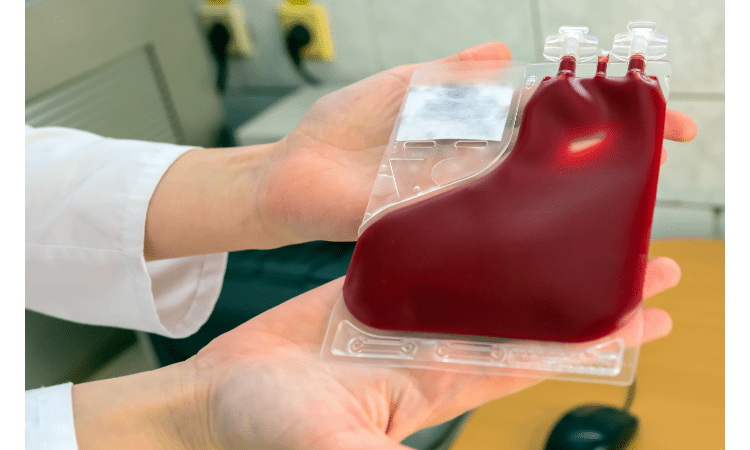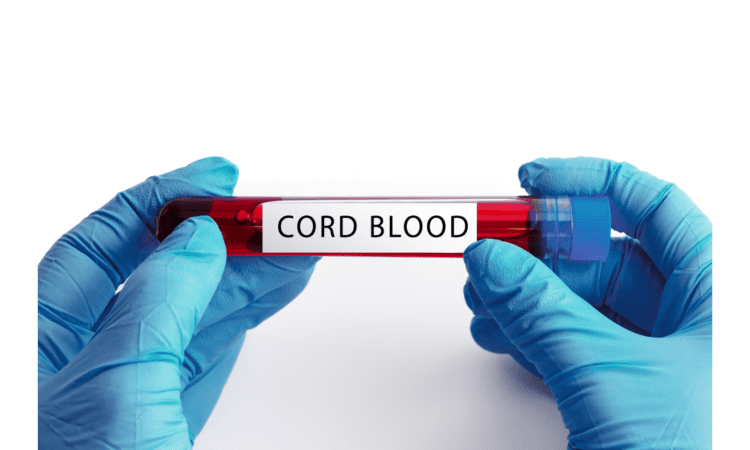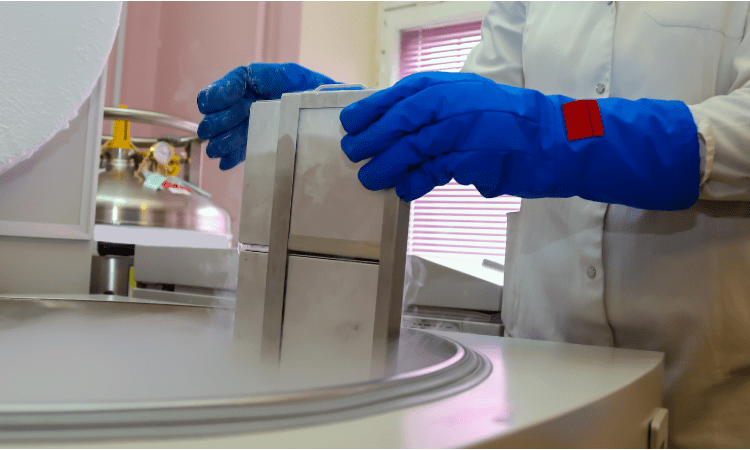
Parents, you may be surprised to learn that your baby’s umbilical cord blood is a valuable resource.
As a parent, you’ve probably heard about cord blood banking and wondered whether it’s something you should consider for your child. With so many options available and so much information to sift through, it can be difficult to know where to begin.
We’re here to help you figure out if cord blood banking is right for your family. In this guide, we’ll answer the questions you have about cord blood banking—from what cord blood banking is, how it works, and why it matters—so that you can make an informed decision about whether or not this option is right for your family.
What is cord blood banking?

Cord blood banking is the process of collecting and storing your baby’s umbilical cord blood. Umbilical cord blood contains hematopoietic (blood-forming) stem cells, which can be used to treat a number of genetic disorders and cancers. The collected cord blood is stored in a cord blood bank, where it can be accessed by the parents or a family member in the event that there is an urgent need for a transplant.
What is Cord blood

Cord blood is the blood that remains in the umbilical cord and placenta following childbirth. It’s rich with stem cells, which are immature cells capable of developing into different types of blood cells. The stem cells found in cord blood are a rich source of healing for many ailments and diseases, including leukemia and other cancers, blood disorders, autoimmune disorders, and more.
A woman can decide to bank her baby’s cord blood if she wants to make it available for future use. This means that the cord blood will be stored in a facility until needed by the baby or family member who has been diagnosed with a disease that can be treated with stem cell transplantation.
Use of cord blood banking
Cord blood banking is a great option for parents who want to preserve their child’s cord blood. It’s also a good idea for parents who want to preserve the cord blood of future children.
There are many uses for cord blood:
Cord blood can be used in the treatment of certain cancers and other diseases.
It can be stored for future use if the child or another family member needs a stem cell transplant later in life. This is particularly beneficial for children who have genetic diseases or disorders that may require a bone marrow transplant in the future. Stem cells from cord blood can also be used to treat other conditions, such as leukemia and anemia, which are commonly found in children.
Things to Remember
Collecting umbilical cord blood from a newborn cannot be used to treat genetic diseases or cancer in the same individual (autologous transplant) because the stored cord blood contains the same genetic mutations or pre-cancerous cells that caused the condition being treated.
The practice of regularly collecting and preserving umbilical cord blood with a private cord blood bank lacks sufficient scientific evidence to support it.
The use of umbilical cord blood transplantation is currently restricted to specific genetic, blood, and cancer-related disorders.
When a family member has a medical condition (cancer or genetic) that could potentially benefit from cord blood transplantation, private umbilical cord blood banking can be taken into consideration.

Cord blood banking means that a baby’s umbilical cord is preserved after birth. The blood in the cord contains stem cells, which can be used to treat a variety of diseases and conditions.
There are two main types of cord blood banking: private and public. Private banking involves collecting your baby’s cord blood and storing it for your family’s use only. Public banking involves donating your baby’s cord blood to a public bank so that if someone else needs it, they can use it for free.
There are a number of options when it comes to cord blood banking, from public donation to private storage. The first option is a public donation, which means donating the cord blood to a public bank that stores it for anyone who needs it. This can be done at the hospital where you give birth or through an organization like Be The Match or the National Marrow Donor Program. You can also donate anonymously if you choose to do so.
The second option is private storage, which means storing your baby’s cord blood for personal use or for use by family members. Private banks often have additional services like a courier service, which will send your baby’s umbilical cord and placenta tissue back home after birth; this helps ensure that parents don’t lose any precious moments with their newborns while they’re waiting for their children’s cells to be processed and stored.
How is cord blood collected?

Cord blood collection is a process that can be done in the hospital or at home, depending on the hospital’s policy. If a family chooses to have the cord blood collected at the hospital, it will be drawn from the umbilical cord and placenta after birth. The collection takes place immediately after the baby is born and before any medical interventions are performed on either mother or baby. Cord blood is collected by using a syringe to remove it from the umbilical cord and placenta after the baby is born. At Least 40 mL of cord blood should be collected to ensure about enough cells for transportation. The collection process takes place immediately after delivery before the umbilical cord has been cut or clamped to minimize the chance of coagulation and also to maximize the volume.
How is cord blood stored?
Cord blood is stored by cryopreservation. This means that it is frozen and stored in liquid nitrogen vials at very low temperatures (between -150 and -195 degrees Celsius). During this process, the cord blood cells are separated from the other components of the cord blood and preserved in a special solution called citrate-phosphate-dextrose (CPD). The CPD solution preserves the cells by protecting them from damage caused by freezing.
Storing cord blood can be a good choice if you have a family history of certain diseases or illnesses, or want to store your baby’s umbilical cord blood in case they need it later on. The American Academy of Pediatrics recommends storing cord blood for families who have a known medical need for it (such as children with leukemia).
Benefits of banking cord blood

Cord blood banking is a way to store the blood in your baby’s umbilical cord. It’s a lifesaving resource that can be used in the future to help treat medical conditions and save lives.
Here are some benefits of banking your baby’s cord blood:
- It helps treat blood cancers, such as leukemia and lymphoma
- It can restore immune systems after an injury or illness has depleted them
- It can replace bone marrow after it’s been damaged or destroyed by chemotherapy or radiation treatment for cancer patients
- It can be used to treat any member of your family. The cord blood you bank today could be used to treat any member of your family, including siblings, parents, and grandparents.
- It’s easy to store and access. Cord blood collection takes place after your baby is born and it’s easy to store at home or in a public bank. When you need it, you can easily access it through the use of a simple kit.
Conclusion
The conclusion of the article is that parents should bank their baby’s cord blood. This is because there are many uses for it, including developing future treatments for diseases, and also because it’s free. The main reason that parents should bank their baby’s cord blood is that they can use it later on if they need it. It has been found that there are many benefits to storing your baby’s cord blood, as well as very few risks associated with this practice.











